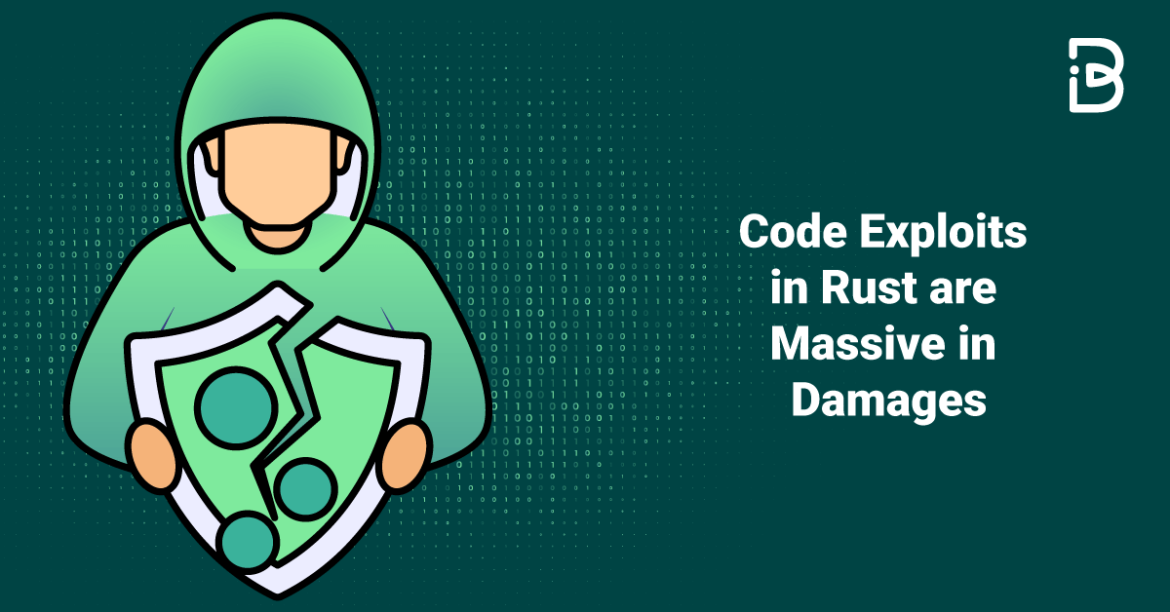With a total mcap of $200 billion and a daily trading volume of $43 billion, smart contracts built in Rust are vulnerable to cyber threats. Ten Rust projects have been hacked for $390 million since 2020!
Interestingly, ten blockchains use smart contracts that are written in Rust. These include Solana, Polkadot, Near, and Casper.
So, it is the perfect time to perform a smart contract audit for your business without waiting. Of course, you would not want to drain all your funds into the hands of a hacker!?
Hacks are uncommon in Rust-coded programs, yet each one results in catastrophic loss. In this blog, we will walk you through Rust and see how its vulnerabilities differ from the ones in C and how difficult it is to hack the codes written in Rust.

Let us begin.
Recommended Smart Contract Audit Company
Rust V/S C Vulnerabilities: How They Are Different?
Table of Contents
Programming languages like Rust and Golang are often compared to C and C++.
Let us briefly discuss the differences in exploiting the programs written in both these languages.
Due to the security issues in C, Rust has been designed cautiously. Security is one of the critical principles in Rust. It achieves this by establishing a stricter approach toward memory access and management. For example- If the developer is not doing something per the rules of Rust, the compiler will not build the program. It will detect the error and stop making the program.
Additonal Read: Common Vulnerabilities in Smart Contracts
On the other hand, in the case of C, it requires the developer to ensure that he is handling everything.
Challenges
Rust’s Built-in Safety Guarantees
Rust has memory safety that minimizes unintended vulnerabilities like dereferencing an unsafe pointer, segmentation faults, double freeing memory, etc., through ownership and borrowing. The safety guarantees make it substantially more difficult for attackers to carry out attacks such as memory corruption. Rust additionally handles variable freeing and management. When data is assigned to memory, the owner (always the variable) allocates it and releases it when it is no longer needed.

Handling Strings From Standard Input
Rust does not allow users to write non-UTF8 characters into buffers. It instantly makes passing shellcode harder because only characters between 0x00 and 0x7F are permitted.
Memory and Thread Corruption Errors Through Implementation Errors
Although Rust ensures memory safety, it can sometimes fall through the cracks due to implementation problems. For example, Rust 1.29.1 addressed a fault in str::repeat that caused a buffer overflow due to an integer overflow. According to the security advisory:
Unsafe Block Of Code
In Rust, the developer may need to do behaviors prohibited by the safety guarantees. Rust adds the unsafe block to get around this. It allows for the following features:
- Defining a raw pointer
- Bringing C code into Rust
- Invoke or use a hazardous function or trait.
- A mutable static variable can be accessed or modified.
- A union’s access fields
Wrapping up
Finding and exploiting vulnerabilities in Rust is more complex than in C. Rust tries to shield its authors against memory vulnerabilities; hence, exploits that aim to damage it (such as buffer overflows and double releasing memory) are far more complicated.
The most effective way to exploit it would be through an unsafe rust code block flaw. Triggering payloads is also more difficult. Because strings must be UTF-8 encoded, the data must be saved in an integer array or vector. The C programming language lacks these constraints since it expects the developer to implement them, leaving it more vulnerable to exploitation.

